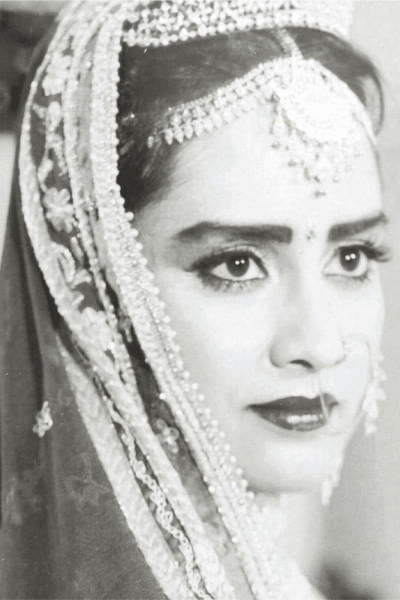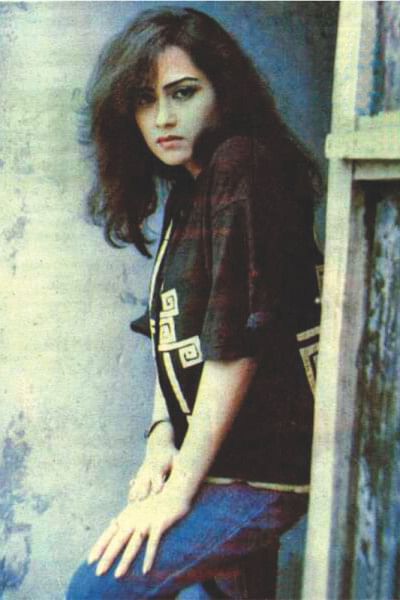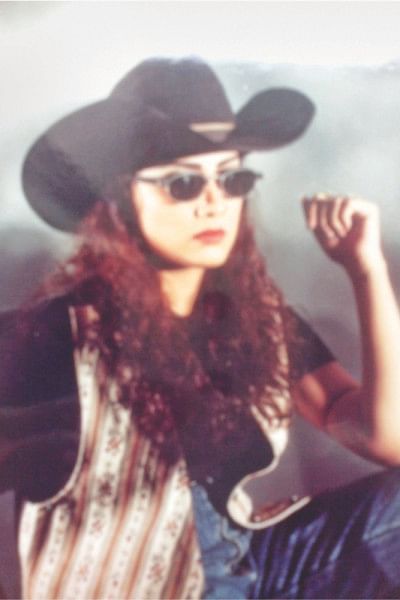Farewell Sabah Apa

I met Sabah Tani back in 2012 when I was asked to be one of the judges for the initial audition round of a TV music reality show. It was a fascinating experience, being a first-timer in something of that sort. I got the opportunity to visit all eight divisions of Bangladesh in 25 days, which otherwise I would have neither the strength nor the time to do. Our primary job was to listen to contestants sing and decide whether they could move up to the next round, where a different set of judges would then comment on their performance. I was lucky enough to have accompanied some of the biggest names of Bangladesh for close to a month, including the sensational pop artist from the 80s—Sabah Tani.
When I first met Sabah apa, we had just started off with the Dhaka round. Unlike some of the other judges, she would actually strike a casual conversation with the contestants and put them to ease before starting the audition. She would ask the right questions, sometimes get a contestant to sing the lines again and would use just the right number of words for encouragement. Clearly, the contestants stepping out of Sabah apa's audition room seemed happy and ready to face the world with their talent.
The audition rounds were filled with big names from the Bangladesh music industry. Maestros like Anup Bhattacharya and Sujay Shaym were part of the audition rounds as well, keeping everyone filled with stories from the pre-liberation era. I was however, awestruck by the brilliant woman, who seemed to know every Bangla song, composed before the year 2012 and had the names of lyricists and composers memorised. Not only that, but she would also sing out some of the raagas to help out the contestants out with their melodies.
During lunch and tea breaks, the many judges—musicians, singers and classical artists—would bunch together for coffee and shingara. During one such break, Mohammad Sumon, the guitarist and vocalist of the band Pentagon asked me to sing a line or two from the song 'Aami tomakei bole debo,' from the popular band Dalchchut. Despite the butterflies inside my stomach, I gathered the courage to sing the mukh and the auntara of the song, just like one of the contestants at the audition. Tor gola to onek bhalo. Kintu tui gola shadhish na ken re? Tora keu practice korish na! (You have a good voice. Why don't you practice regularly?)—she said to me, once I finished. And that's how we connected—through poetry and music.

Sabah apa was the favourite of the lot. Spending half an hour with her meant listening to the jokes her friends would text her and which she would obligingly share with everyone around her, adding infectious giggles in between. She would sometimes read out a few lines from a poem—Bangla, English or Urdu—or start an in-depth conversation with her fellow colleagues and judges about the present conditions of the music industry in Bangladesh. The long trips from one district to another in the mini buses and cars with Sabah apa and others, would often end with interesting stories from the 80s, when Sabah Tani was an absolute hit on stage and was also a best seller with the cassette industry.
In a nutshell, Sabah Tani was a bubbly teenager trapped in the body of a 43-year-old woman. She was happy, loved to cook and talk about age-old recipes, was always talking about her ancestral home in Korotia, Tangail where she had grown up and was a wonderful story-teller.
Deep down, however, Sabah Tani was a sad soul. As beautiful person as she was, she was heavily distracted by and disheartened at the ugliness showcased by the world around her. It was like she was carrying the burden of so many on her shoulders. Her social media platform are still filled with happy pictures, however, of her mother and only son Aneed. But she always seemed to be waiting for something extraordinary to rush in and sweep her off her feet. She was always very keen on organising soirees and musical get-togethers at her place and would often call me up asking me to get all the younger ones together. “Back in the day, everyone would join us for a meal at our place in Dhaka,” she would tell me, referring to the 80s and the 90s when the music legends of the time—Labu Rahman, Foad Nasser Babu, Maqsood Haque and many more would meet up at her home and jam together. She would smile to herself and talk about the gaaner addas they would have late into the night. “Tokhon shob kichu onek bhalo chilore...,” (Life was perfect back then) she would say.

The news of her death shattered the world of music, a couple of weeks ago, when Sabah Tani was found dead at her home in Uttara early in the morning. She had also been suffering from low blood pressure for a long time, according to her family. While condolences poured in from all over, some stayed silent, unable to believe what had happened.
Sabah Tani remains an inspiration and an icon to pop singers in Bangladesh today. Sabah Tani will always be the fashion icon rocking the stage in her glittery dresses and unique hairstyles. “She was Madonna to me!” writes singer Alif Alauddin.
And some will remember her as the spontaneous person, with so much love, music and words within, that she had always wanted to share with the world.
As her intro reads on her Facebook timeline—My soul is travelling without my body.
May your soul finally rest in peace.
Elita Karim is the editor of Star Youth, The Daily Star. Follow her on Twitter: @elitakarim

 For all latest news, follow The Daily Star's Google News channel.
For all latest news, follow The Daily Star's Google News channel. 



Comments